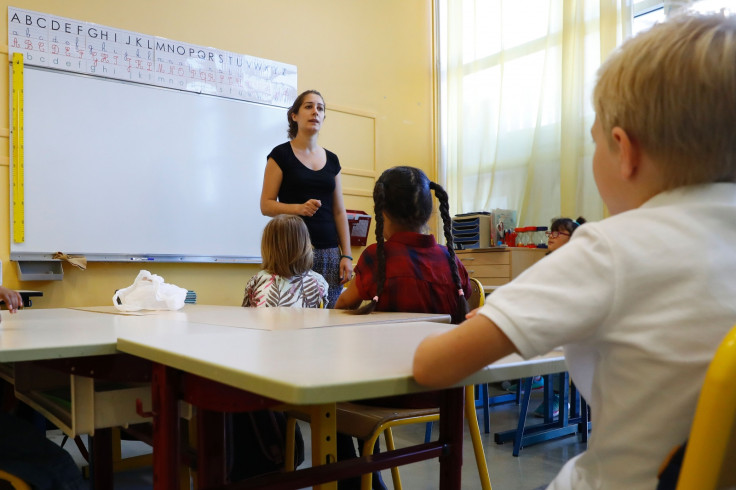Check how much your child's school could lose in funding as unions warn of cuts impact
New interactive map purports to show annual real-term losses of about £400 per primary school pupil by 2020.

Some of the country's most disadvantaged children will be hit worst by an estimated £2.5bn ($3bn) of cuts to the annual education budget by 2020, unions say.
A new report claims schools with the most deprived intakes will face average annual losses of £584 per primary school pupil, with £784 per child in secondaries.
It also claims nine in 10 schools in England could face budget cuts in real terms over the next four years, with no local authority likely to see an increase in funding.
It comes as the education budget fails to rise with inflation and a new funding formula is introduced.
A report and interactive map – at schoolcuts.org.uk – was launched by The National Union of Teachers (NUT) and the Association of Teachers and Lectures (ATL) on Friday (4 November) to show the full impact of the projected cuts.
The map allows parents for the first time to search by school or postcode to see how their child's education could be affected.
The average annual real-term loss for primary schools is predicted to be £96,481 – or £401 per pupil – with secondary schools seeing losses of £290,228, or £365 per pupil.
The NUT and ATL said it amounted to the "biggest real-term cuts in a generation".
NUT general secretary Kevin Courtney said: "No head teacher should be put in the position of increasing class sizes, leaving building repairs undone or cutting staff and resources simply to balance the books. Nor should any parent accept this for their child.
"We are one of the richest countries in the world. We can and we should be funding our schools properly."
The unions' figures show how some of the worst-hit schools include those in Education Secretary Justine Greening's own constituency of Putney, where there will be a predicted 13% cut in education funding.
Other areas said to be badly hit include Manchester (15%), Middlesbrough (14%), Coventry (14%), Bristol (12%) and Birmingham (13%).
In London, the unions anticipate real-term cuts of 16% in Southwark, Lambeth and Hackney, and of 15% in Haringey and Kensington and Chelsea.
But the Department for Education (DfE) attacked the report as "irresponsible scaremongering", saying it is "based on figures that are entirely speculative".
It pointed out the unions' calculations had been partly based on an unofficial funding formula proposed by F40, a campaign group which has been fighting for fairer funding.
A DfE spokesman said the government's own "fairer funding" formula, announced in March and planned for 2018/19, has yet to be published or finalised.
They added: "In reality the schools budget has been protected and in 2016-17 totals over £40billion, the highest ever on record."
The new funding formula is intended to fix historic imbalances in how schools are allocated money.
The current system sees significant fluctuations in per pupil funding, with Tower Hamlets funded at £7,014 per pupil in 2015/16 while the lowest funded authority, Cambridgeshire, received £3,950 per pupil.
But the NUT and ATL say that without a real-term increase in the education budget, changes to how schools are funded will still mean many children "will lose out".
They said F40's funding formula was the "best approximation" currently available, and that their figures are also based on projections by the Institute for Fiscal Studies (IFS).
ATL general secretary Mary Bousted said: "We urge the Government to increase the overall funding for schools. If it just reallocates the existing budget many children will lose out, with some of the most deprived children being hit hardest.
"It is ill-conceived to think the formula for schools' funding can be reformed alongside real-terms cuts to the overall schools' budget. No school should be forced to cope with a drop in funding that will jeopardise its ability to deliver a broad and balanced curriculum and recruit and retain staff."
Earlier this year, IFS researchers forecast a funding cut of 7% per pupil by 2020. They said that in real terms school budgets will still be about 50% higher than they were in 2001, before the then-Labour government's substantial investment in schools.
© Copyright IBTimes 2025. All rights reserved.




















